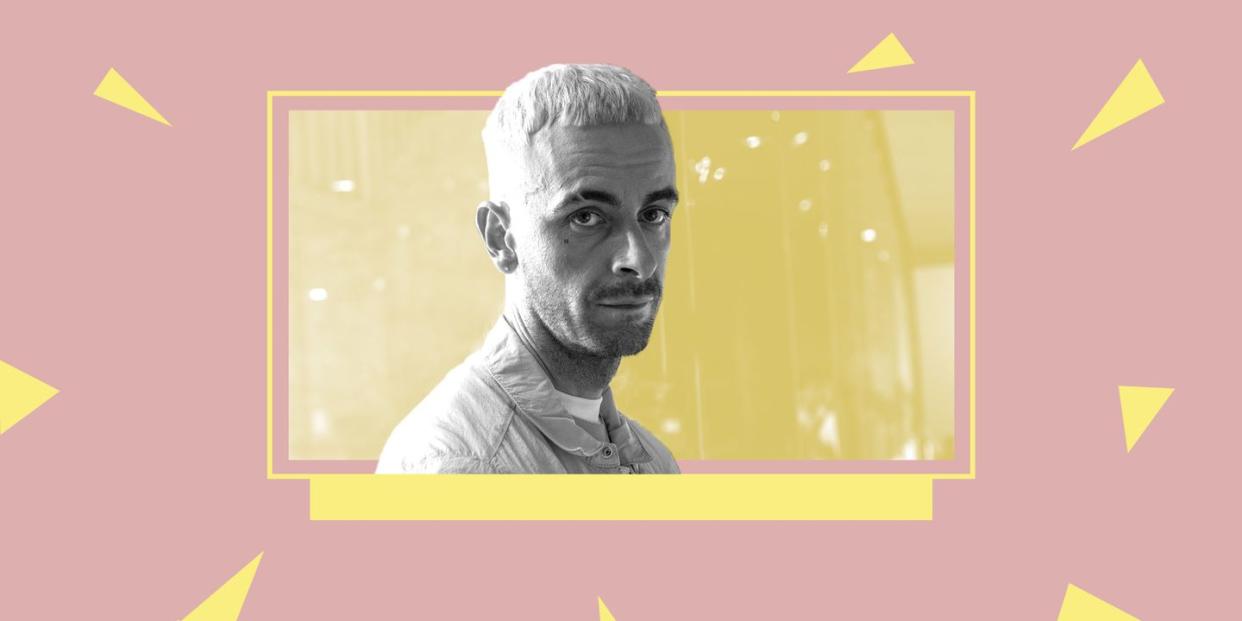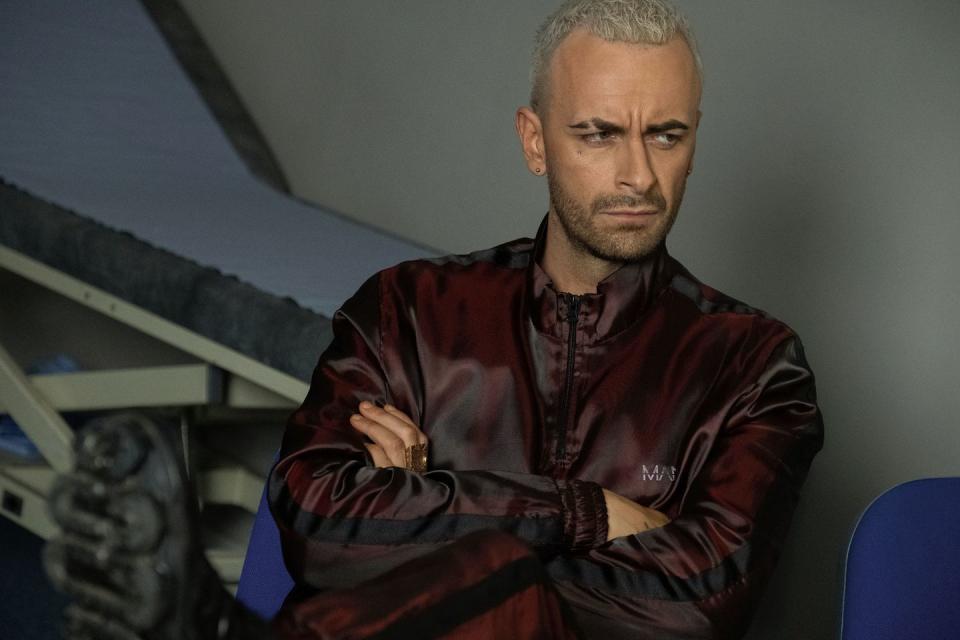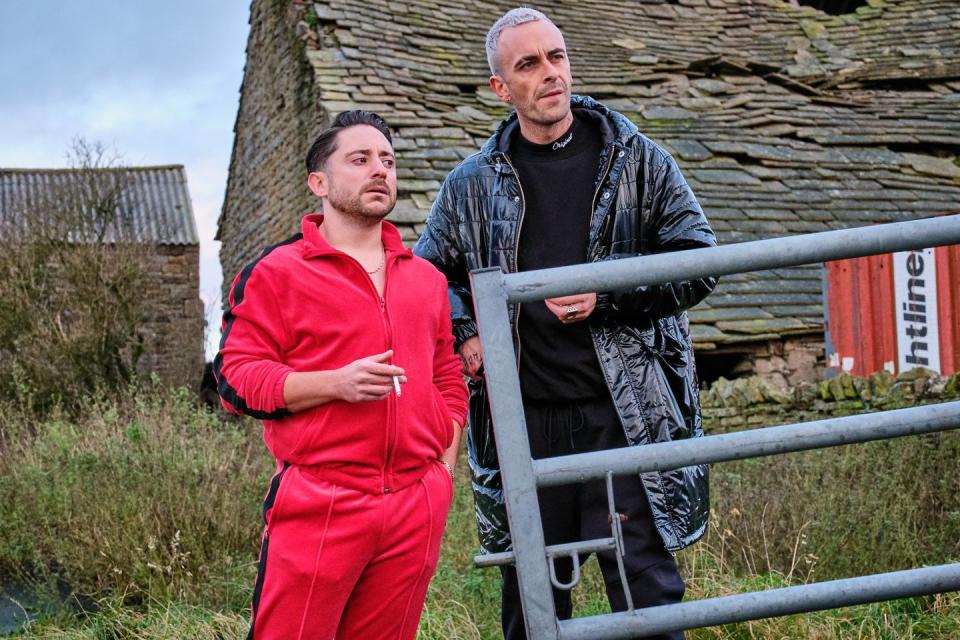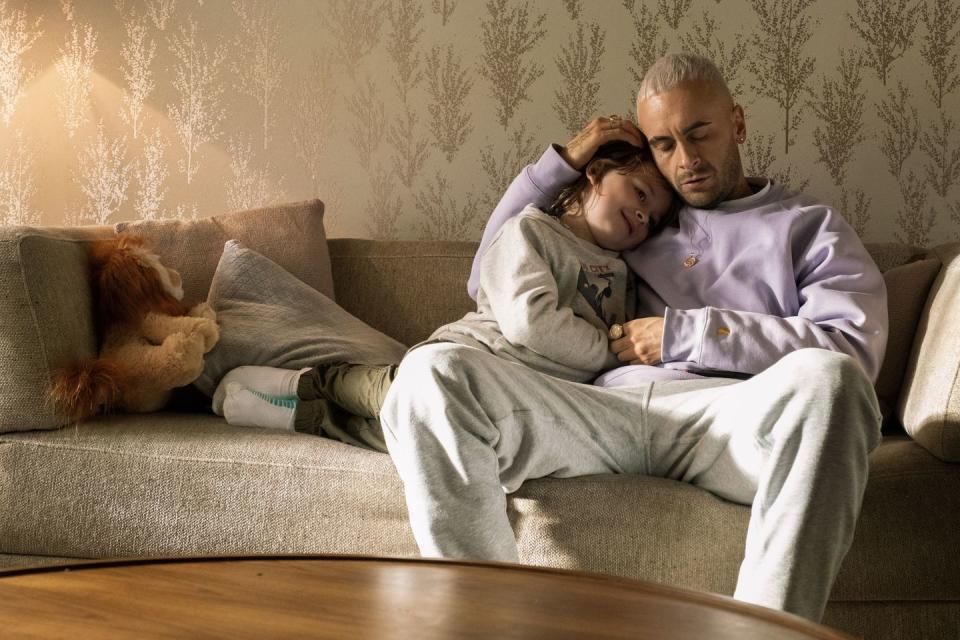My Mental Health: What Brassic can teach us all about bipolar disorder

Each year as part of Mental Health Awareness Week, Digital Spy writers share their experiences of how entertainment can be part of the conversation around mental illness.
Note: Contains spoilers for Brassic.
In the first episode of Sky One's Brassic, there's a scene where protagonist Vinnie pelts across a field, while being shot at by its angry owner. "Vin, you're not being rational", his best mate Dylan shouts. The mission: to steal a pony. Attempt thwarted, the men vault a wall to safety. "Now we're living," says Vinnie, eyes shining. We also see Vinnie at the GP: "One minute I'm down in the dumps, I can barely get myself out of bed," he says. "Next minute, I’m f**king up, making stupid decisions that affect everyone, not just me."
These two scenes set the tone: Brassic, co-created by and starring This Is England's Joe Gilgun, might be driven by Vinnie's crew's illegal schemes in a fictional northern town – including running a weed farm, robbing a circus and accidentally stealing an antique dildo – but it also takes an unflinching look at life's heavier topics, such as Vinnie's bipolar disorder.
The show is loosely autobiographical, Joe tells Digital Spy. He grew up in a northern town, smoking weed, getting into scrapes. While those crime sprees are heightened for comic effect, Vinnie's story is closer to Joe's own. Like his protagonist, and like me, Joe has a bipolar diagnosis. Over a FaceTime chat, he says that he wanted to convey his experience without "forcing it down anyone's throats". Being honest about the condition on screen was imperative, but not at the expense of the overall narrative. Vinnie isn't defined by his bipolar diagnosis – in some episodes it's not mentioned – and nor is Joe. "It's part of me, certainly, but it's not who I am."

Brassic deftly manages to raise awareness of a condition that according to Bipolar UK, affects one in fifty people, but is often misunderstood. On paper, Joe and I have the same diagnosis: bipolar II, characterised by episodes of depression and hypomania, rather than the more extreme mania typical of bipolar I. Mental health charity Mind defines hypomania as "periods of overactive and excited behaviour that can have a significant impact on daily life". In reality, symptoms are not so neatly categorised, there's a bipolar spectrum and within that, many grey areas.
Joe and I discover that we take two of the same medications – antidepressants and a mood stabiliser – but he has an antipsychotic and treatment for ADHD in the mix (and, he freely admits, weed, which he says calms him down). Joe also has dyslexia, and recently spoke to The Guardian about the effect it had on him at school and today.
"My bipolar's quite violent," says Joe. "I'm not walking around starting f**king fights with everybody, but I'm not sat there, hugging myself bawling in a corner, I'm pacing around, ranting like a f**king lunatic. Then that wears me out and eventually it turns into anxiety because it won't leave."
We see this in Vinnie: screaming at his mates for messing up a job, convulsing with anger. But we also see lows. At the start of series two, he's hiding in his cabin in the woods, not washing and has been hoarding bottles of urine, something Joe has talked about doing himself during a bad depressive episode, during an in-depth interview with BBC Radio 5 Live.
For me, during lows, getting out of bed was my nemesis. After false starts, I'd haul myself up; with each movement, an increasingly strong force would be pulling me back to the bed, like a Gladiators contestant giving into the gravity of the Travelator. I'd inevitably end up back lying down, duvet over my head. Instead of being cheered on by Ulrika Jonsson, it would be my mum on the phone pleading with me to get up.
There are some grim similarities in our stories. According to the charity Bipolar UK, the average time to diagnosis is nine years. Like most, Vinnie sees his GP for treatment, Dr Chris Cox, played by Dominic West. Cox is hilariously unethical, turning up to appointments high and derailing conversations to discuss his love life.
When Vinnie confides he's having suicidal thoughts, Dr Cox suggests CBT (cognitive behavioural therapy), before adding there's a five-month waiting list. His solution: go private, something Vinnie can't afford.

That's how it went for Joe. For years, he was prescribed increasingly high doses of antidepressants, changing medication frequently. "It was like this f**king tragic roundabout," he says. While filming Misfits, a concerned producer organised a private psychiatric appointment, in which he was diagnosed with bipolar II and stripped of his cocktail of medication. Joe stresses that his doctor was not to blame, it was the system – the lack of understanding of serious mental illness and difficulty in accessing mental health services.
For me, it took over four years from first being prescribed antidepressants by my GP to my diagnosis – and that was with all private treatment, bar that initial appointment where I was told there would be a six-week wait for a psychiatric assessment. I started seeing a therapist weekly, and the psychiatrist every few months, usually at my lowest. As someone who's naturally outgoing, and used to a brain that often feels in overdrive, I wouldn't have recognised hypomania, let alone sought help for what to me felt 'normal'.
My diagnosis happened when a new psychiatrist spoke to my family (with my consent). Mum filled her in on my recent depressive episodes, as well as various depressive episodes and mood swings as a teenager, which at the time, were blamed on hormones. I'd shared my struggles with friends and family and crucially, my parents had the means to help. Where does that leave the brassic, like Vinnie? Or those who find it the hardest to discuss their emotions – Joe tells me he has lost a number of friends to suicide, mostly working-class men like him. But unlike him, they didn't talk about how they were feeling.
On screen, Vinnie is a loyal mate, empathetic to all, and the gang's agony uncle – both to the boys and long-time friend, Erin (Michelle Keegan). Joe also has that role in his friendship group. "I'm someone people come to. Maybe because I feel no shame, there is zero judgement from me."

Joe says he's strict about taking his medication, doing exercise (he's a runner), and he goes to his therapist once a week and only now at 36 that he's "started to get on top of it". But he admits he struggles and has ambivalence around how the bipolar affects his work.
"It's a double-edged sword. Sometimes it really helps [creatively] and I can draw from it, and other times I just have to power through." Would Joe wish bipolar away? "If there was a button, I don't think I would press it. The horror I know is better than the horror I don't."
For me, it's clearer: I'd rather not have to live with bipolar disorder. I've been well for over two years, and although my psychiatrist is optimistic that will continue, I'm acutely aware that may not always be the case. I will instead try to be more open and honest and shrug off any fear of judgement, starting now – this article is the first time I've shared my diagnosis publicly. After all, like for Vinnie and for Joe, bipolar is not all I am – it is just a bit-part set against the main action.
We would encourage anyone who identifies with the topics raised in this article to reach out. Organisations who can offer support include Bipolar UK on 0333 323 3880 (www.bipolaruk.org), Samaritans on 116 123 (www.samaritans.org) or Mind on 0300 123 3393 (www.mind.org.uk). Readers in the US are encouraged to visit mentalhealth.gov.
You Might Also Like

 Yahoo News
Yahoo News 
